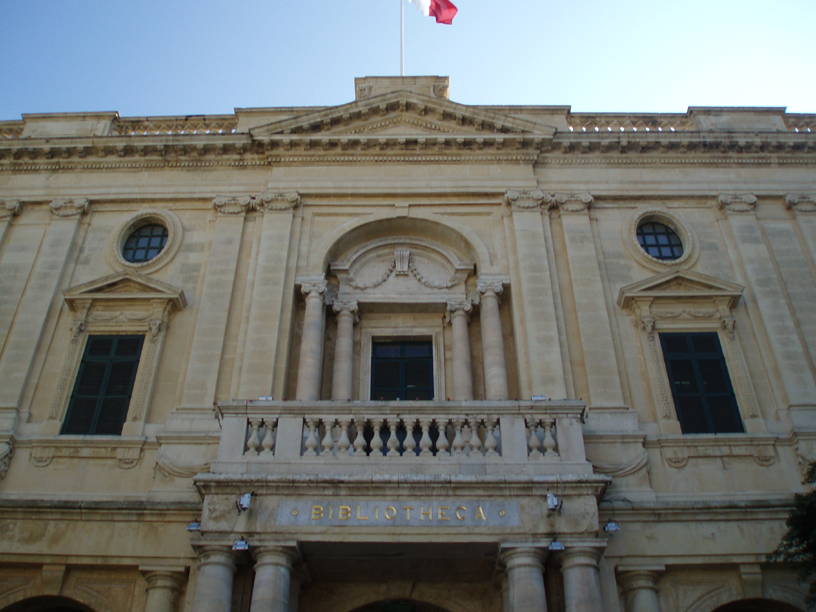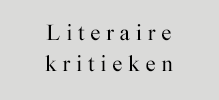Reportages
Op 7 oktober 2017 was het vijf jaar geleden dat Ivo Michiels overleed. Lars Bernaerts en Sigrid Bouset vroegen aan acht auteurs en aan zijn echtgenote om hun geliefde auteur sprekend in leven te houden.
Op zondag 8 oktober om 11 u. werd dit huldenummer van DW B ...
Alleen online: A Love Story of Books and Libraries. Part one
And for what, except for you, do I feel love
Do I press the extremest book of the wisest man
Close to me, hidden in me day and night?
(Wallace Stevens, ???Notes Towards a Supreme Fiction???)
No reira, e kui ma, e koro ma, e hoa ma. Tamariki ma, mokopuna ma ??? Tena koutou.
Tena koutou, tena koutou katoa. Ka huri.
(Patricia Grace, Potiki)
[Therefore, elder women, elder men, friends. Children, grandchildren ??? welcome to you. Welcome, welcome to you all. Here turns]
Jan Lauwereyns ends his 2005 Revolver article about New Zealand, ???De Toekomstvreters???, with this closing quotation from Patricia Grace???s novel Potiki (Penguin, 1986). The choice of these performative words (???ka huri???), despite the disclaimer ???Ik heb geen flauw idee wat het allemaal betekent??? [???I have no idea what any of this means???], signals that his narrative has ended for now and that he is turning to the next speaker. In that spirit, I resume the dialogue from Wellington, New Zealand, home of the Alexander Turnbull Library.
Tena koutou, tena koutou, tena koutou katoa.
Nga mihi nui kia koutou katoa.
[Greetings, greeting, greetings to you all.
Warm greetings to you all]
This is a story of how I got to the Alexander Turnbull Library, the library which is the subject of Ruth Lightbourne???s article. The library is a supreme fiction. It embodies imaginative curiosity, it creates an ???invented world???, it makes our heart beat with the rhythm of thought, it is a true passion and pleasure. I immigrated to Wellington in 1990 because of my love for books and libraries. Books defy distance, in time and space, and I love them for their persistence despite obvious material fragility. I am fascinated by what gives libraries their quirky, flawed coherence: the futile attempts at exhaustiveness, the obsessions of the collectors, the madness of the classification systems. Under the terms of the Fulbright exchange programme, I should have gone back to Belgium after finishing my PhD at the University of Illinois at Urbana-Champaign, where I had fallen in love with its massive, entirely accessible library with a collection second only to Harvard and Yale in the US. I felt an embarrassing lack of homesickness as I made my home in one of the best libraries in the world, surrounded by the endless cornfields of the Midwest. The oldest agricultural research fields in the US, the Morrow plots, were above the underground Undergraduate library, and I enjoyed the idea of the corn and oats waving above the books.
Belgium did not beckon me back with a real job, so I absconded down under for a tenure-track position in the English department of Victoria University of Wellington. It would be absurd to say that I fled sexism, nepotism, political favouritism for an ideal world. As Jan???s Revolver article takes pains to point out: racism, sexism, and any other ???ism are as alive and kicking here in Aotearoa, the country of the long white cloud, as they are in Belgium, or any other place I???ve ever been to. My motivation to come to the place where, according to my mother, I ???could not get any further???, was very simple: New Zealand made it possible for me to indulge in my passion for books and libraries and it was willing to pay me sufficiently to live independently into the bargain. Not a bad deal for a woman who knows that equal access to jobs which really pay the bills is not a dead issue just yet. Actually getting into a library took a while for women too. After all, we might get ideas. Virginia Woolf, a fellow bibliophile and library lover, fumed when, as an unaccompanied lady, she was denied access to an Oxbridge college library in the 1920s: ???That a famous library has been cursed by a woman is a matter of complete indifference to a famous library??? (A Room of One???s Own, 1929, chap. 1). The book about women and libraries remains to be written, and it is a story which is closely related to the history of literacy and the economic independence which comes with it. That story is of course not restricted to women; it extends to all dispossessed. It is entirely obvious why repressive regimes of all sorts are keen to withhold literacy from their subjects. Books inspire and open minds. Books assert their presence in glorious diversity of numbers, sizes and bindings; they defy pre-cooked ideas of neatness and order. They clutter and proliferate. Books are fearless both for what they say and don???t say, and for that reason, their resilient vulnerability, they are inevitably the target of repressive censorship and hateful destruction.
Whole books have been filled with stories about ???the library???. This is not surprising considering the aura of wonder and discovery which surrounds the very notion. One of my favourite stories in Alberto Manguel???s delightful book The Library at Night (Yale UP, 2008) is his account of the ???biblioburros???, the ???donkey libraries???. The donkeys are walking libraries; they bring books to the jungle and the sierra of Colombia.
I love the yoking of books and donkeys, of portable wisdom patiently carried by an innocent drudge reminiscent of Don Quixote and Sancho Panza. Libraries come in all sorts of forms and shapes. I savour the contrast of the splendidly named, ambulant biblioburro with the monumental, formidable National Library of Malta in Valletta, Malta, which I had a chance to visit in November 2011, many years after bibliophile Boudewijn Buch devoted one of his delightful Vrij Nederland ???libraries around the world??? sketches in the 1980s to it. The Malta library, covered in dust and ensconced in the elitist tradition of the ultra-conservative Order of St John, operates firmly on a default ???noli me tangere??? setting.
Photo: Valletta, November 2011 (Heidi Thomson)
Unlike professional positions and countries, most libraries display some transparency about admission criteria. Before I checked out the libraries in Wellington upon my arrival in 1990, I registered with the Belgian Embassy and was asked, incredulously, ???how I got in???? I applied for a job, I said. And you just got it, just like that? Just like that. Stunned silence. The unthinkable. In 1990. Go figure. The Belgian Embassy closed down about a decade ago. There had been a motley succession of ambassadors, remittance men who were punished with a final far-flung posting before retiring on a fat civil service pension that would no doubt enable them to indulge in a bit of book collecting. The reception area of the Belgian embassy office even boasted a small showcase library which consisted of a few dusty national treasures, novels by Timmermans and faded art books with pictures from Breughel and photographs of the atomium. But the national treasures got packed off back home in the diplomatic post bag (or shredded?) sometime in the southern hemisphere autumn of 2002, not long, come to think of it, after the ambassador???s partner got into a fight with a night club bouncer at closing time on Courtney Place. In her fight for the right to party she ended up with a black eye, made the front page of the Dominion Post, was denied diplomatic immunity, and wore Jackie O shades at the official function for the crew of a French warship the next night. The shades matched her Chanel outfit, but this harmonious display did not prevent the notification, not very long afterwards, that all diplomatic matters would now be handled through the Sydney office. I couldn???t possibly comment on the connection between the incident and the folding of the embassy, but I was at the party???one???s social credit rises exponentially in a country with a handful of Belgian expats???and noticed that the bookshelves of the reception rooms were empty apart from a few small figurines, a glass menagerie. There was a lot of jaded talk about ???how far??? Wellington was while copious amounts of Cloudy Bay sauvignon blanc from the nearby Marlborough vineyards provided comfort for those who were deprived by distance from the shops whose labels they were draped in. ???Far from what???? has become my standard, downright belligerent response to the recurring question of what it feels like to live ???so far???. I never get an answer which convinces me of the advantages of proximity to whatever my interlocutor might have in mind.
Real emigrants, as opposed to diplomats with an unlimited removal budget, have a different relationship with their books. Unlike more sedentary types we are forced to make radical decisions about material possessions or, more specifically, we learn to master, sort of, the art of losing. Our fresh start in new places often requires us to abandon, jettison, lose, shed whatever does not fit in within the luggage or budget restrictions of international flights or affordable freight. Only a few years ago, one summer afternoon in December 2009, Jan, in full preparation mode for his move to Fukuoka, wheeled a cart over from his room in the Psych department to my office in the English department with his deselected Wellington library on it. Not so much a biblioburro as a bibliotrolley. Even if he were to deny it and cast it as some purification ritual, some shedding of an already obsolete skin, I knew that hurt. I now have a couple of ???Jan shelves??? in my office, just as I have a ???Vincent shelf??? with splendid editions of the Romantics, bequeathed when my friend, the poet Vincent O???Sullivan, moved down South, to Dunedin. The fact that I ended up with Achterberg and Byron means that my friends consciously chose to hang on to Coleridge and Faverey, Rilke and Kavafy. At that moment in time they could not imagine life without those writers, and those choices sharpen and focus their reading and writing, borne out by their poems. Having to abandon books refocuses our need to read them. In his fourth epistle of the Moral Essays Alexander Pope already satirized merely decorative libraries, prized solely for the expense of the bindings or consisting of trompe l???oeil painted spines. More recently, Australian novelist Alex Miller purposefully includes the carcass of a termite-eaten library, with nothing but the still intact spines surviving, in the ghostly homestead to which the protagonist had directed her unlikely quest for meaning (Journey to the Stone Country, 2002). Libraries carry the material traces of care or neglect so nakedly, and New Zealand libraries are full of stories of immigrant book lovers??? efforts to secure their treasures. Alexander Turnbull???s assets allowed him to operate on a sumptuous scale, but immigrants on distinctly smaller budgets left their mark as well.
Take Charles Brown. John Keats???s best friend had had enough of England, and, swayed by misleading promises of a pacific paradise (believe me, New Zealand is far closer to Antarctica than the blue skies seem to suggest), ended up on the treacherous coast off New Plymouth in November 1841. The ???wide boulevards??? he had been promised turned out to be mud tracks, and Brown spent most of his time in New Zealand plotting his return to England before a stroke killed him in June 1842. But he brought the books he could not bear living without, and the collection as a whole is now in the wonderful Puke Ariki library in New Plymouth, Taranaki, so close to the fierce, dangerous coast upon which his boxes had been precariously delivered. Many are small octavos, play scripts and Shakespeare, some of which had belonged to Keats himself. There is something very moving about the trouble bestowed on that small, modest library in those challenging conditions. A small library affirms that one is now settled somewhere, and when Keats took refuge on the Isle of Wight for a stint of writing in April 1817 he wrote to his friend Reynolds: ???I am about to become settled, for I have unpacked my books??? (Selected Letters, Harvard UP, 2002, p. 15).
As a Romanticist by trade I naturally gravitate towards the 18th and early 19th century volumes in the Alexander Turnbull Collection, and I love finding out how books ended up in the collection. When brilliant critic, difficult man, William Hazlitt died destitute in 1830 in Frith Street, Soho, his landlady hid the corpse under the bed so she could advertise the room immediately upon Hazlitt???s demise. She also held on to his books as a corollary for his debts. Two young admirers of Hazlitt???s sharp wit and critical intelligence, Charles Wells and Richard H. Horne, visited and took care of the funeral. One of them, Horne, ended up in Australia in the 1850s, ostensibly digging for gold but mostly hanging out in Henry Dwight???s amazing bookshop in Melbourne. The Alexander Turnbull Library copy of William Wordsworth???s four-volume 1820 Poems carries the traces of its provenance well: a stamp of Dwight???s bookshop, Horne???s name, and the inscription ???Hazlitt???s copy???. Horne probably got hold of Hazlitt???s book in 1830, took it with him to Australia, and, hopeless at managing the gold mines entrusted to his care and chronically broke, sold it to Dwight before returning to England where he became a minor literary lion. The Wordsworth, Hazlitt, Horne connections, mediated through Dwight, proved attractive for Turnbull who acquired that copy, and a raft of other Horne items, for his own library.
Text continues in Part two


%20the%20invisible%20XXVIII%2c%20100x80%20cm%2c%202014.jpg)



